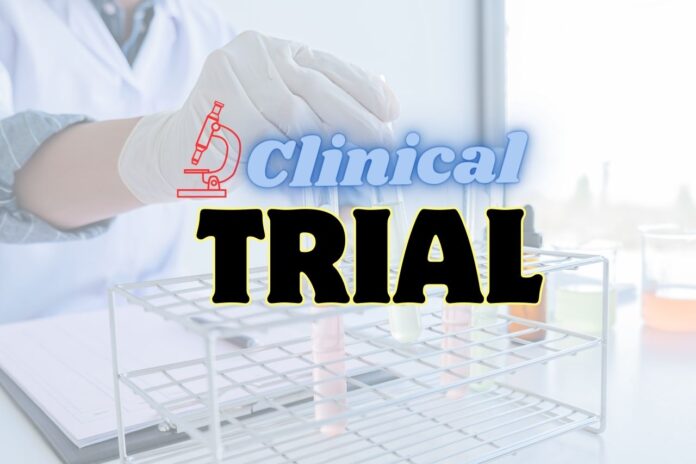Last Updated on October 2, 2024 by The Health Master
Clinical Trials
Clinical Trials: In a significant move to combat tuberculosis (TB), the Department-Related Parliamentary Standing Committee on Health and Family Welfare has proposed a series of crucial steps to strengthen the fight against this persistent health challenge.
These recommendations, outlined in the 149th report on the implementation of Pradhan Mantri TB Mukt Bharat Abhiyan, highlight the urgent need for clinical trials on vaccine candidates, advanced diagnostic methods, and the exploration of booster doses for the BCG vaccine.
Prioritizing Clinical Trials
The Committee strongly advocates for prioritizing clinical trials of all vaccine candidates for tuberculosis.
This initiative aims to assess the efficacy of these candidates across various community settings and for different target groups.
To facilitate these trials, the government is urged to mobilize the necessary funds, allowing for the swift scaling up of promising vaccine platforms.
Revisiting BCG Vaccine Effectiveness
The Committee’s attention is drawn to the limitations of the BCG vaccine in providing adequate protection to adolescents and adults at high risk of TB.
As a potential solution, the Committee suggests expediting research on the effectiveness of BCG re-vaccination.
Depending on the results, introducing a booster dose of recombinant BCG vaccine in the universal immunisation programme is recommended.
This could serve as an effective and cost-efficient strategy in controlling TB.
Innovative Diagnostics for TB
The Committee underscores the importance of research and innovation in the fight against TB.
It calls for the development of simple, time-efficient diagnostic methods that frontline workers can employ, delivering results within minutes at minimal costs.
Such methods would revolutionize diagnostic services, making them more affordable and accessible to patients.
Advancing Drug Regimens
Research on new drugs is identified as a critical area for strengthening treatment regimens, with a focus on shorter durations and lower toxicity for TB patients.
The Committee emphasizes the urgency in scaling up evidence-supported drug regimens for Latent TB infection, drug-susceptible, and drug-resistant TB infections.
It urges the government to expedite the process and introduce these regimens to treat TB cases.
Leveraging Technology for TB Detection
The Committee recommends procuring the indigenously developed Truenat diagnostic machine in bulk and distributing it at minimum block levels across the country, with potential extension to primary health centers.
This machine provides results in a mere 45 minutes and identifies Rifampicin resistance in an additional 45 minutes, allowing for rapid and accurate TB testing.
Innovative Skin Tests for TB Prevention
The Committee advocates for the widespread utilization of newly developed skin tests for TB preventive treatment, particularly for individuals in close contact with TB patients and at-risk groups like those with diabetes or alcohol dependence.
It emphasizes expediting the validation of these tests for children under 18, enabling early intervention at the infection stage.
Leading TB Research Efforts
The Department of Health Research (DHR) and the Indian Council for Medical Research (ICMR) are at the forefront of TB research in India.
They are focused on developing affordable diagnostics, shorter drug regimens, new TB vaccines, and innovative strategies for comprehensive TB control.
Their efforts include geospatial analytics to identify vulnerable hotspots and operational research to strengthen healthcare service delivery.
Promising Developments
Interim results from a pragmatic study on newer drug regimens, conducted by the National Institute for Research in Tuberculosis (NIRT-ICMR) in collaboration with the Central TB Division and the WHO country office for India, have shown promise.
Once administrative approval is obtained, these regimens will be integrated into the program, marking a significant advancement in TB treatment.
Harnessing AI for TB Detection
The Central TB division is actively involved in developing artificial intelligence solutions for automated reading of chest x-rays and cough sounds for TB detection, as well as the interpretation of line probe assay (LPA).
The Committee notes that these AI models are currently undergoing validation with ICMR, signaling a promising step forward in leveraging technology for TB control.
Disclaimer: This article contains information derived from the source mentioned below. Our team utilized an AI language model to rewrite and present the news or article in a unique format.
Anti TB Drug: Pharma companies now can supply worldwide
Anti-TB Drugs: Urgent appeal to address critical shortage in India
Johnson & Johnson under investigation for Pricing of TB Drug
Forms: All types of Clinical Trials
Schedules: All types of Clinical Trials
Latest Notifications: New Drugs and Clinical Trials
Other details about New Drugs, FDCs, Clinical trial
List of approved FDCs (Fixed Dose Combinations) Updated
FAQ-dt-18-02-2020-CDSCO-on-New-Drugs-and-Clinical-Trial
FAQ-dt-23-08-19-CDSCO-on-New-Drugs-and-Clinical-Trail
AI is changing the Pharmaceutical Industry in India, read details
Anti TB Drug: Pharma companies now can supply worldwide
Revised Schedule M: Govt sets deadline for pharma industry
Safe Blood Transfusions: Guidelines and Precautions
USFDA Approval granted for this Generic Hypertension Medication
PLI Scheme: Boosting Pharmaceutical and Medical Device Manufacturing
CDSCO approval granted for Palivizumab preventive therapy
NMC Regulations: Stringent Measures for Medical Colleges
USFDA issues Form 483 with one observation to Aurobindo: Andhra Pradesh
For informative videos by The Health Master, click on the below YouTube icon:
For informative videos on Medical Store / Pharmacy, click on the below YouTube icon:
For informative videos on the news regarding Pharma / Medical Devices / Cosmetics / Homoeopathy etc., click on the below YouTube icon:
For informative videos on consumer awareness, click on the below YouTube icon:











